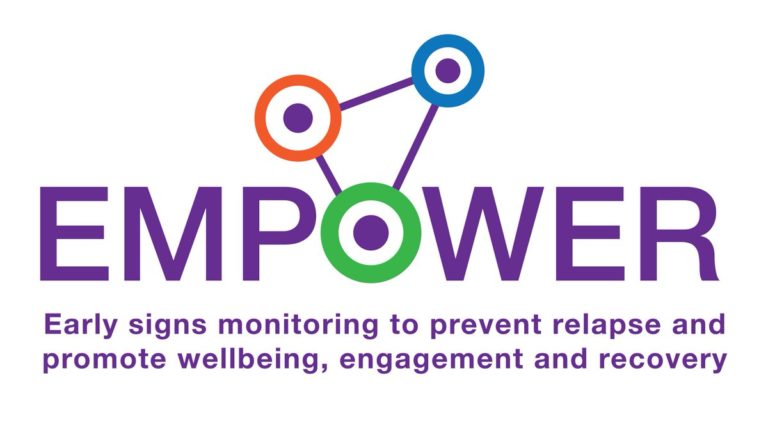The Research
When recruiting, those eligible for this service are adults over the age of 16, people in contact with local community-based services, or people who have been admitted to a psychiatric in-patient service at least once in the previous two years for a relapse of psychosis or a diagnosis of Schizophrenia. Carers are also invited to participate.
Initially operating in Glasgow and Melbourne, the study asks for the views of service users, carers and staff. These are taken into account and applied to the technology. After preliminary tests of the technology and refinement, a pilot was tested with Community Mental Health Teams (CMHTs) being given EMPOWER or usual treatment, at random. A full analysis will follow from this.
Participants in the study will use the EMPOWER app for a full year, it providing early warning sign monitoring. People will be prompted to report on their symptoms on a daily basis. If the app detects a worsening of symptoms it will then send out personalised messages to improve self-management. If things don’t improve or become significantly worse, the research team can initiate a relapse prevention pathway into the clinical care team in secondary care.
The Results
From patient interaction, we will identify how successfully people were recruited and if they stuck to the study, along with the safety of the EMPOWER intervention. We will assess relapse, symptom recovery, emotional recovery, empowerment and engagement. After documenting processes and learning from these approaches, this will then feed into the design of the main trial.
The Impact
We aim to recruit 120 participants from eight CMHTs and follow up their app interaction for a year. This will enable us to investigate the feasibility of a larger scale trial and the acceptability and safety of the EMPOWER intervention.
Find out more about EMPOWER: w3.abdn.ac.uk/hsru/empower/
Enquiries to Kate Holmes, Communications and Public Engagement Coordinator, The Farr Institute of Health Informatics Research: kate.holmes-3@manchester.ac.uk


